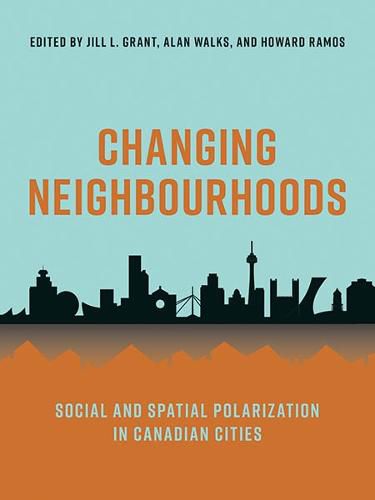Readings Newsletter
Become a Readings Member to make your shopping experience even easier.
Sign in or sign up for free!
You’re not far away from qualifying for FREE standard shipping within Australia
You’ve qualified for FREE standard shipping within Australia
The cart is loading…






Canadians have a right to live in cities that meet their basic needs in a dignified way, but in recent decades increased inequality and polarization have been reshaping the social landscape of Canada’s urban areas. This book examines the dimensions and impacts of increased economic inequality and urban socio-spatial polarization since the 1980s. Based on the work of the Neighbourhood Change Research Partnership, an innovative national comparative study of seven major cities, the authors reveal the dynamics of neighbourhood change across the Canadian urban system. While the heart of the book lies in the project’s findings from each city, other chapters provide important context. Taken together, they offer important understandings of the depth and the breadth of the problem at hand and signal the urgency for concerted policy responses in the decades to come.
$9.00 standard shipping within Australia
FREE standard shipping within Australia for orders over $100.00
Express & International shipping calculated at checkout
Canadians have a right to live in cities that meet their basic needs in a dignified way, but in recent decades increased inequality and polarization have been reshaping the social landscape of Canada’s urban areas. This book examines the dimensions and impacts of increased economic inequality and urban socio-spatial polarization since the 1980s. Based on the work of the Neighbourhood Change Research Partnership, an innovative national comparative study of seven major cities, the authors reveal the dynamics of neighbourhood change across the Canadian urban system. While the heart of the book lies in the project’s findings from each city, other chapters provide important context. Taken together, they offer important understandings of the depth and the breadth of the problem at hand and signal the urgency for concerted policy responses in the decades to come.